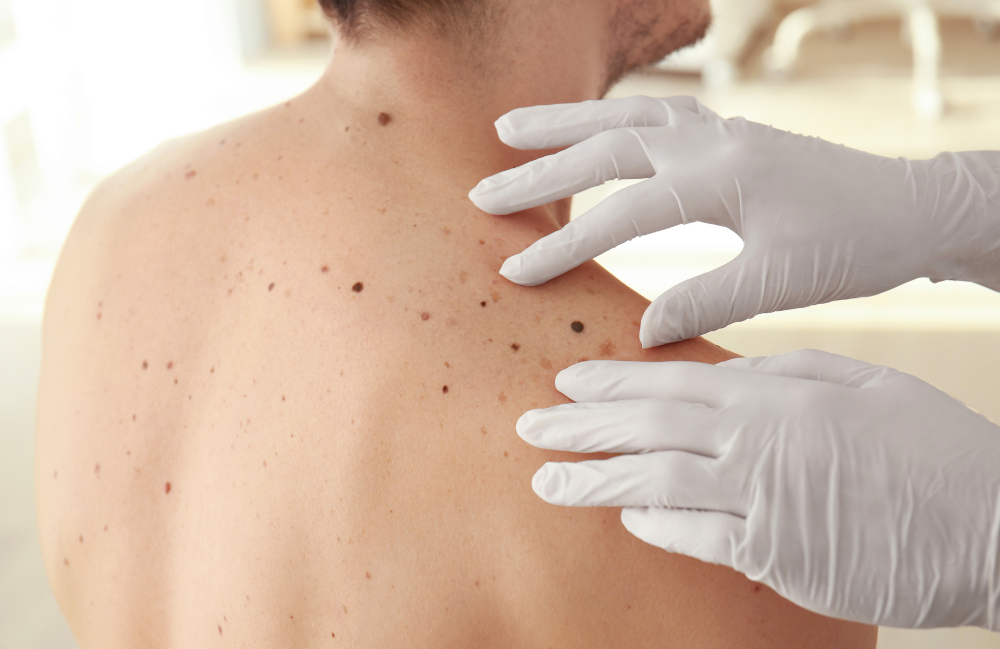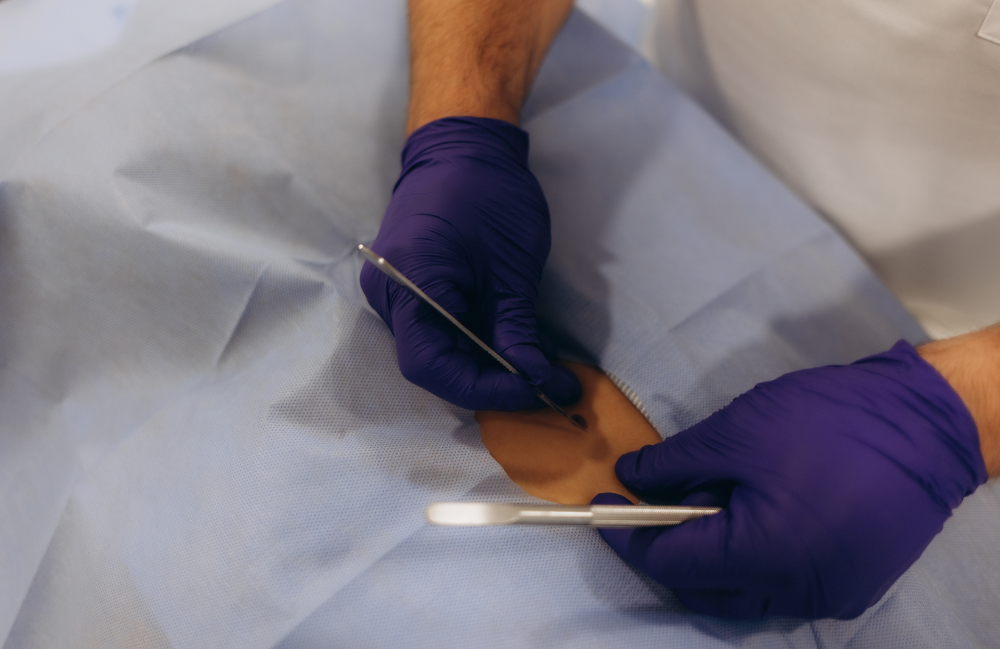
What Is Skin Cancer?
Skin cancer occurs when abnormal cells grow uncontrollably in the outer layer of the skin, known as the epidermis. The three main types of skin cancer include basal cell carcinoma (BCC), squamous cell carcinoma (SCC), and melanoma. Melanoma is the most dangerous type of skin cancer, while BCC and SCC are more common but still require prompt treatment.
Causes
The leading cause of skin cancer is UV radiation from the sun or tanning beds. Long-term exposure to ultraviolet rays damages the DNA in skin cells, leading to mutations that trigger cancerous growths.
Other contributing factors include:
- Fair skin. People with light skin, light hair, and light-colored eyes are at a higher risk.
- Family history. A genetic predisposition to skin cancer can increase the likelihood of developing the condition.
- Age. The risk of skin cancer increases with age, particularly for individuals over 50.
- Compromised immune system. Certain medications or diseases that weaken the immune system can increase the risk.
Symptoms
Early symptoms of skin cancer vary depending on the type, but common signs include:
- New growths or spots on the skin.
- Changes in existing moles or lesions, such as changes in size, shape, or color.
- Sores that do not heal or bleed easily.
- Red or scaly patches that persist over time
Skin Cancer Removal
At Metropolis Dermatology, we offer skin cancer excision as a primary treatment option. This procedure involves surgically removing the cancerous lesion along with a margin of healthy tissue to ensure all cancer cells are eliminated.
Here’s how it helps:
- Thorough removal. The procedure ensures that both the visible cancer and underlying cells are excised.
- Microscopic analysis. The excised tissue is sent to the lab for analysis, ensuring that all cancer cells have been removed.
- Minimal scarring. Advanced techniques minimize the appearance of scars.
- Quick recovery. Most excisions are outpatient procedures with local anesthesia and a short recovery time.
- Reduced recurrence risk: By removing the entire lesion, the chances of recurrence are significantly lowered.

FAQs
How do I know if I need a skin cancer removal?
If you notice any suspicious moles or lesions that change in appearance, size, or color, it’s essential to schedule a consultation for a professional skin check.
Is skin cancer excision painful?
The procedure is performed under local anesthesia, so there is minimal discomfort during the process.
What is the recovery time for skin cancer excision?
Most patients can return to normal activities within a few days, though you’ll need to follow aftercare instructions to ensure proper healing.
Will there be scarring after the procedure?
While some scarring is possible, our dermatologists use advanced techniques to minimize its appearance.
How can I prevent skin cancer in the future?
Regular use of sunscreen, protective clothing, and routine skin checks are crucial for reducing the risk of skin cancer. However, our advanced skincare and lasers can also reduce future risk of skin cancers.
Hear from
Real Patients

Schedule Your Consultation Today
For expert skin cancer screening and removal, visit Metropolis Dermatology in San Jose, CA. Our skilled dermatologists will guide you through every step of your treatment to ensure the best possible outcome!
